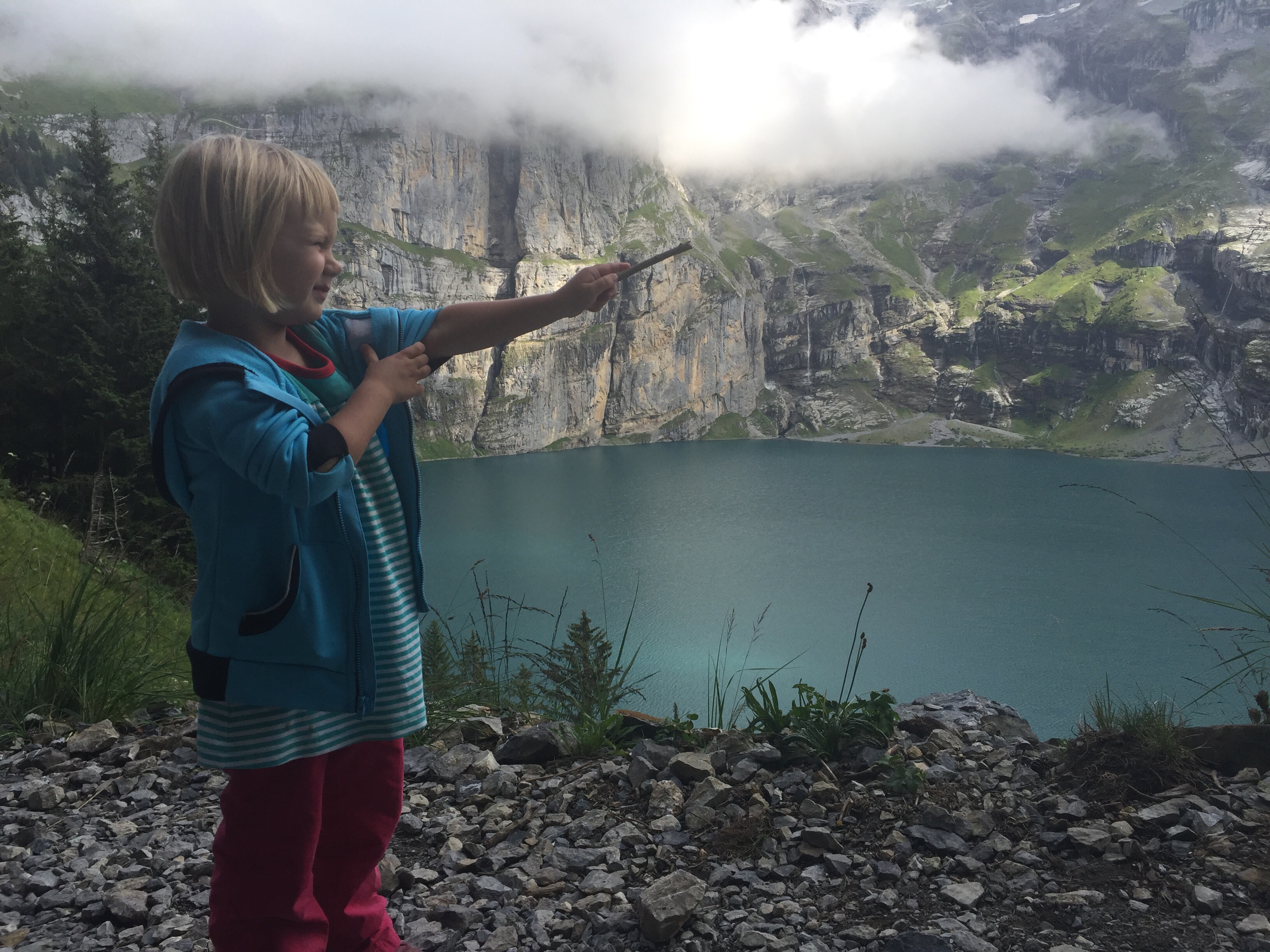Wondering on Wonder

In our romantic world, we see it as truth that a baby must spend their time in a perpetual state of wonder. It’s amazing that the sky appears to have no end. It’s a wonder that water goes down the drain. It’s a wonder that Dad moves his arms, and puts this strange thing in his armpits after taking a shower.
But I started paying attention and I see little “wonderment” in my daughter’s budding countenance. In fact, I don’t even often see it in the seven-year-old’s face, without being whipped up by my prodding (and my older son is fairly excited about the world, comparatively).
This whole concept of wonder, I think, is decidely adult, and must be a projection of our state of mind (envy, perhaps) on what a child must feel when faced with a new world.
I am beginning to think that a child’s mind — especially a baby’s mind — really is in a perpetual state of “opposite” wonder, of “matter of fact”. Ah, the sky goes on forever. Ah, so the water goes down the drain. Ah, so dad likes to fondle his armpits with something after a shower, never mind that it is putting on deodorant.
They do not have the construct of what is not possible to be in wonder of what is. They do not have the disinterest of all things irrelevent to know when something [or anything] keenly is amazing. I remember that it took some time before my son stopped tuning into the background noises of the city as part of everyday/every-moment listening.
If anything, it is even stronger on that vector by having touches of indifference. “Dad’s fiddling with his armpits again, hmm.. why isn’t he smiling at me right now?”
So “wonder” is the denizen of the adult world, and it is the responsibility of the parent not to bask in their children’s sense of wonder (which is only a self-induced state), but rather to instill the sense of wonder in what might otherwise be a teenager disinterested in all things unknown, disaffected to reality’s extents, existential to the highs and lows of life.